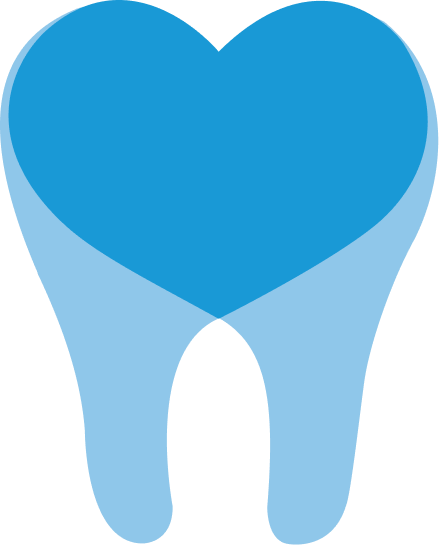Call: (630) 812-7929
The Top 10 Ways to Improve Your Overall Dental Health


Having healthy teeth and gums is essential for maintaining good overall health and well-being. Poor dental health has been linked to a variety of health issues, including heart disease, stroke, diabetes, respiratory infections, and even dementia. It’s important to take care of your dental hygiene every day, as it can help prevent these serious health problems from occurring. Here are the top 10 ways that you can improve your overall dental health.
Brush Twice a Day
Brushing your teeth twice a day is one of the most effective ways to keep your teeth clean and free from plaque buildup. It’s best to use a toothbrush with soft bristles and gentle motions when brushing. You should also make sure to brush your tongue and the backs of your teeth, as these areas are often neglected.
Use Fluoride Toothpaste
Using fluoride toothpaste helps to prevent cavities by strengthening the enamel on your teeth. Additionally, it can help reduce sensitivity in teeth that have been damaged from acids, such as those found in some sodas and sports drinks. It’s important to pick a toothpaste that is approved by the American Dental Association (ADA) for optimal results.
Floss Daily
Flossing may seem like an extra step, but it’s one of the most important parts of maintaining good dental health. Flossing helps to remove plaque, food particles, and bacteria that brushing alone cannot. It also helps to prevent gingivitis and other gum diseases.
Consider an Electric Toothbrush
Electric toothbrushes can help remove more plaque and debris than manual brushing. Additionally, electric toothbrushes can be more effective in hard-to-reach places, such as the back of your mouth or between teeth. Make sure you follow the manufacturer’s instructions for proper use and cleaning of your electric toothbrush for the best results.
Visit the Dentist Regularly
Visiting the dentist regularly is important for maintaining good oral health. During these visits, it is important to have a professional cleaning done, as it can help remove plaque and tartar buildup. Additionally, your dentist can detect any problems in the early stages and provide treatments accordingly.
Understand Your Insurance Plan
If you have dental insurance, it’s important to understand what type of coverage you have and how much money is allotted for each visit. Knowing this information beforehand can help you plan for additional costs if necessary. Additionally, understanding your insurance plan will ensure that all of your visits are covered properly.
Ask Questions
It’s important to ask questions during every dentist visit so that you fully understand what procedures or treatments are being done on your teeth or gums. Don’t be afraid to ask for clarification if something is unclear.
Use a Mouth Rinse
Using a mouth rinse can help reduce the number of bacteria in your mouth and keep your breath fresh after brushing. Antibacterial and fluoride rinses are available at most drugstores, but it’s always best to check with your dentist before using any type of mouth rinse.
Maintain a Balanced Diet
Eating a balanced diet is one of the best ways to maintain good dental health. It’s important to limit sugar intake, as this can contribute to tooth decay and periodontal diseases. Additionally, eating plenty of fruits, vegetables, nuts, and other healthy foods can help keep your teeth and gums strong.
Avoid Acidic Beverages
Beverages such as soda, sports drinks, lemonade, and tea can be very acidic and can erode the enamel on your teeth over time. It is best to avoid or limit these types of beverages as much as possible. Additionally, it’s a good idea to rinse with water after consuming these beverages to help prevent tooth erosion.
Chew Sugarless Gum
Chewing sugar-free gum can help increase saliva production which helps to wash away food particles that may get stuck in between teeth. Additionally, many sugar-free gums contain xylitol which helps prevent tooth decay.
Avoid Tobacco Use
Tobacco use, either in the form of cigarettes or chewing tobacco, can have a major impact on your oral health. It increases your risk for gum disease and can cause bad breath, discoloration of the teeth and tongue, and an increased risk for mouth cancer. It is best to avoid any type of tobacco use to maintain good dental health.
Conclusion
Maintaining good dental health requires effort and dedication. By following these healthy habits you can help ensure that your teeth stay strong and healthy for many years to come. Whether it’s brushing twice a day with an ADA-approved toothpaste or visiting the dentist regularly, these simple tips will help keep your mouth in top shape.
A: There are many types of mouth rinses available, including those that contain fluoride or antibacterial ingredients. It is best to speak with your dentist before using any type of rinse.
A: Generally, it is recommended that you visit the dentist every 6 months for a cleaning and check-up. However, if you have any specific concerns or issues with your teeth, it may be necessary to visit more often.
A: Yes, brushing twice a day is essential for maintaining good dental health. This helps remove plaque and bacteria from your teeth, which can lead to tooth decay and other oral health issues.





